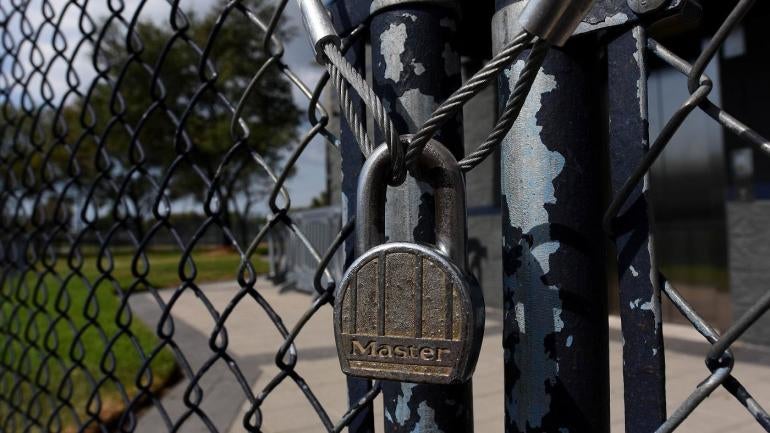
If there's a sports industry that is familiar with the negative effects of an event that hurts the local or national economy, it's that of youth sports. It's an easy-to-understand logical trail: a parent that loses their income will likely not be putting whatever limited funds they have into a league for their child to participate in. This happened during the financial crisis in 2008 and is happening now, with the coronavirus pandemic leading to millions filing for unemployment over the last two weeks alone.
In a report from the Associated Press, some of the biggest organizations in youth sports are fretting about the financial losses that will soon be experienced -- if they're not being experienced already -- as a result of COVID-19. President of the the Amateur Athletic Union (AAU), Roger Goudy, is currently banking on a late June girls volleyball tournament to help cushion some of the losses, but the uncertainty that this pandemic has brought has left that saving grace up in the air.
"If we don't crank up, I'd say, by the first of May, we're going to see some tremendous losses simply because we're not going to have time for those events that have qualifiers," Goudy told the AP. "But by the same token, you don't want to put them into an environment where their health or their family's health or the coaches or the volunteers' health are at risk. So that's a tightrope that we're walking right now."
US Youth Soccer CEO Skip Gilbert also spoke of the anxiety this situation has brought. His organization oversees an estimated 3 million players and every one of those players' respective seasons is naturally dealing with a question mark looming overhead.
"I think it's one of those that, when you're looking at the ceiling at 2 in the morning going, you know, playing the 'what if' scenarios, you're worried," Gilbert said to the AP. "But when I put on my hat every day and I'm talking to staff and talking to parents, you want to be as hopeful as possible."
It truly says something about the precarious nature of things as they stand when two top executives in a $25 billion industry are speaking with such concern. Sure, these statements should be taken with a little grain of salt given that any C-suite individual will fret over losing lots of money -- that's part of their job -- but the precedent for this kind of drop-off is rather grim.
The AP notes in its report that participation in team sports dropped from 45 percent in 2008 to 38 percent in 2014 as a result of the recession. Though the economy recovered eventually, that 2014 participation number remained stagnant, per the Aspen Institute Sports and Society Program. Just as it was then, the problem now is that once sports become out of reach of a family's budget, there's no telling whether they'll return to the fray. As Carrie Langford, COO for the North Texas Celtic Futbol Club -- a 65-team portion of the lucrative select soccer business in North Texas -- puts it, "The question is, we don't know who's coming back and who can afford it."
The second part of Langford's comment has been an ongoing issue for youth sports. As the Aspen Institute itself has found, rising costs have turned many elite -- and even some middling -- youth sports groups into pay-to-play models, which drive parents who can't afford such luxuries away from the ability of allowing their kids to play. So, in actuality, an explanation for the heavy concern from every person quoted in the AP story could be that the coronavirus pandemic will exacerbate an already existing issue within the industry.
Yet, while it could be seen as a more equitable thing that an industry that has only continued to alienate families outside of a certain tax bracket is starting to break apart, allowing the whole system to collapse unto itself is not exactly a satisfactory achievement. As Dev Pathik, founder and CEO of Sports Facilities Advisory -- a Florida-based company that works with municipalities on youth sports and recreation venues -- puts it, "Eagles turn to vultures in times like these."
In other words, this global pandemic could be just the thing that youth sports needs to make things even worse.















